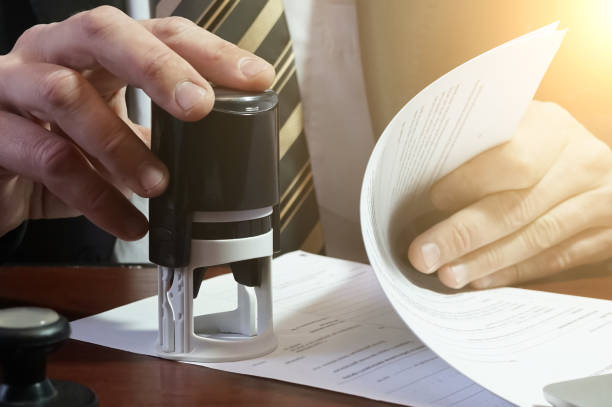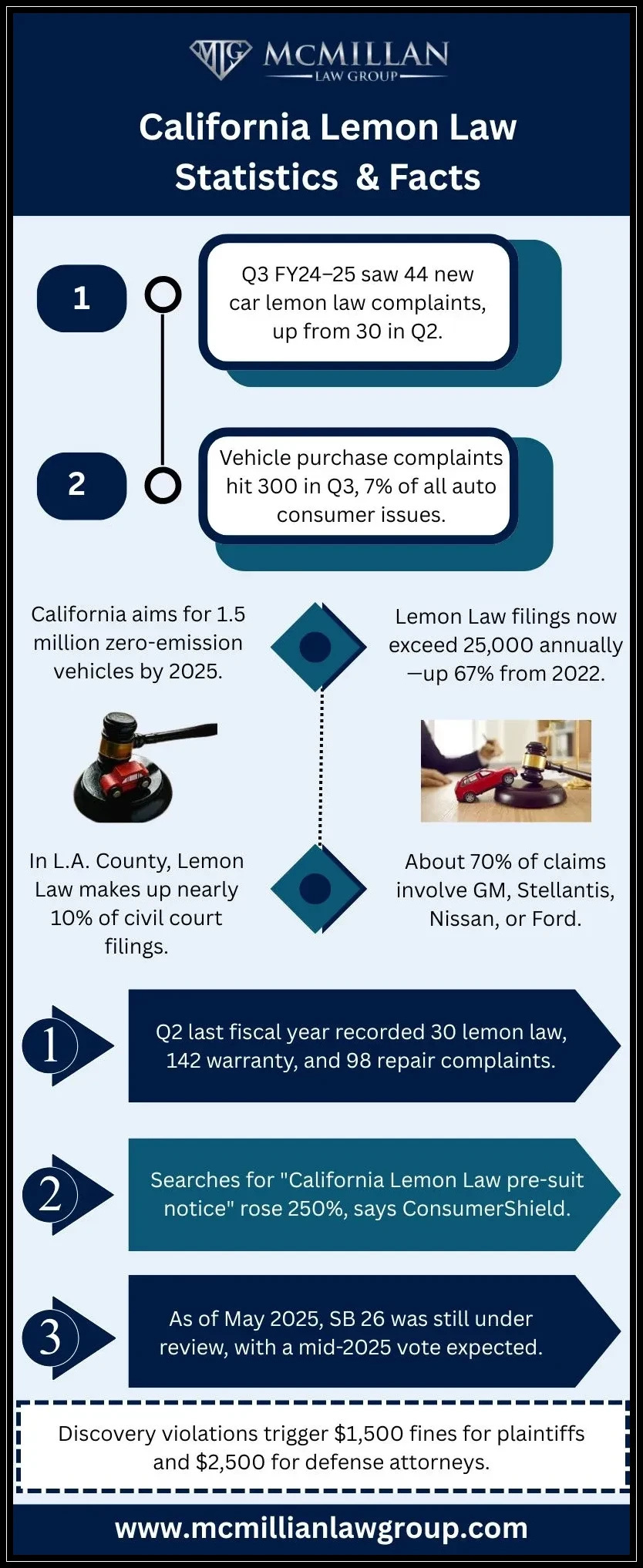The California Lemon Law aims to safeguard consumers by holding manufacturers accountable for addressing defects in vehicles promptly. Despite its consumer-oriented intent, hidden within the law are loopholes and obstacles that can hinder its efficacy. This piece explores the overlooked exceptions and difficulties encountered by individuals seeking recourse through the California Lemon Law.
Understanding the California Lemon Law Basics
The Song-Beverly Consumer Warranty Act, commonly referred to as the California Lemon Law, grants consumers the entitlement to receive a refund or a replacement if they buy a faulty vehicle. This regulation applies to both new and pre-owned vehicles that are within the warranty period.
To be labeled as a lemon, a vehicle must have a significant flaw that hinders its functionality, worth, or safety. Generally, the manufacturer is given several opportunities to fix the problem before the consumer is eligible for a replacement or refund under the law.
Lesser-Known Exemptions
Mileage Limitations
An obscure exception within the California Lemon Law pertains to mileage restrictions. Occasionally, vehicles that surpass a specific mileage limit may not qualify for protection under this law. These mileage thresholds differ, so consumers must familiarize themselves with them to determine if they are eligible for any recourse.
Repairs Outside Manufacturer Specifications
A different exception pertains to repairs carried out by unlicensed technicians or with unapproved components. Should a consumer choose to have repairs done that do not meet the manufacturer’s standards, it could potentially undermine their ability to utilize the Lemon law. This underscores the significance of following the manufacturer’s instructions when undertaking repairs.
Modifications and Alterations
Changing or adjusting a vehicle can also affect a consumer’s qualification under the California Lemon Law. If the issue stems from unauthorized modifications or alterations, the Lemon law may not offer the equivalent safeguard.
Challenges Faced by Consumers
Lengthy Legal Processes
Consumers often encounter a significant obstacle when seeking recourse under the California Lemon Law due to the protracted nature of the legal proceedings. The resolution of lemon law disputes can drag on for an extended period, stretching from months to years, resulting in considerable inconvenience and frustration for consumers grappling with faulty or used vehicles.
Burden of Proof
Proving a vehicle is a lemon demands consumers to provide substantial evidence, which can be difficult due to potential disagreements with manufacturers over the defect’s seriousness or the repair attempts made. To build a strong case, consumers need to maintain detailed records of repairs, communications, and any other relevant documentation.
Manufacturer’s Resistance
Manufacturers frequently put up a strong fight against lemon law claims, engaging in tactics such as questioning the claim’s legitimacy, minimizing the defect’s seriousness, or attributing the issue to the consumer’s actions. This opposition can create obstacles for consumers seeking to enforce their legal rights.
Legal Resources and Assistance
Resources are available to help individuals dealing with Lemon Law cases navigate the complexities and challenges. Various organizations and agencies specialize in assisting consumers seeking relief in such situations. The following are some resources that can provide guidance and support:
- Better Business Bureau (BBB): The Better Business Bureau offers assistance to customers in resolving conflicts with manufacturers and offers valuable information on a company’s standing and how they address consumer grievances.
- Consumer Advocacy Organizations: Consumer advocacy groups such as Consumer Reports and the Center for Auto Safety provide essential support, guidance, and assistance to individuals facing Lemon Law problems.
- California Department of Consumer Affairs (DCA): In California, the DCA is responsible for monitoring Lemon Law compliance and offers guidance on how to submit complaints and comprehend consumer entitlements.
- National Highway Traffic Safety Administration (NHTSA): The NHTSA provides details about vehicle recalls and safety defects, ensuring that consumers are aware of any potential problems with their vehicles.
Tips for selecting an experienced Lemon Law attorney
When facing a Lemon Law dispute, having a skilled California Lemon Law attorney by your side can make a significant difference. Consider the following tips when selecting a Lemon Law attorney:
- Experience: Select a lawyer who has specialized expertise in handling Lemon Law cases. An attorney well-versed in the intricacies of such matters is more adept at maneuvering through the legal terrain.
- Reputation: Evaluate the lawyer’s standing by perusing feedback, and endorsements, and consulting with nearby legal organizations. A history of success can inspire trust in their capacity to manage your situation effectively.
- Communication: The attorney must prioritize open communication. Lemon Law cases typically require regular correspondence, and a proactive attorney can ensure you are well-informed and promptly address any concerns you may have.
- Fee Structure: Before signing any agreements, make sure you grasp the attorney’s fee arrangement. Certain Lemon Law lawyers operate on a contingency model, where they are compensated only upon successful resolution of your case.
Online resources for consumers to stay informed about their rights
Staying informed about Lemon Law rights is crucial for consumers facing vehicle defects. Utilize online resources to stay up-to-date and empowered:
- California Lemon Law Guide: The California Department of Consumer Affairs’ official guide is a thorough resource that covers Lemon Law rights, processes, and common inquiries.
- Consumer Rights Websites: ConsumerReports.org and Edmunds.com offer a platform for consumers to access articles, guides, and forums that facilitate the sharing of experiences and provide valuable insights on Lemon Law matters.
- Legal Blogs and News Outlets: Staying up-to-date with consumer protection matters can be achieved by regularly reading legal blogs and news sources, which provide valuable insights into recent updates, case results, and revisions to Lemon Law regulations.
Utilizing available legal aid and resources can empower consumers to better grasp Lemon Law cases, make educated choices, and improve their prospects for a positive outcome. Seeking expert advice and keeping abreast of developments are essential strategies for successfully navigating the complex terrain of Lemon Law conflicts.




